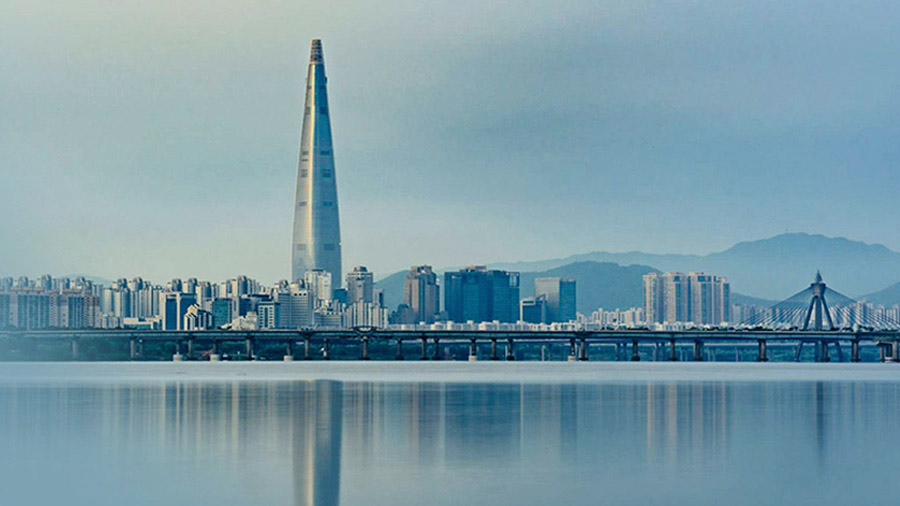Turkey or Türkiye (formally accepted as the country’s name by the United Nations as of 2022) is a transcontinental country – located partly in the Anatolian Peninsula in West Asia and partly on the Balkan Peninsula in Southeast Europe. India has enjoyed historical and civilizational links with the region. Formal ties, however, between India and Türkiye were established in 1948 and have since grown stronger through high-level political visits, foreign office consultations, diplomatic interactions at international forums, and deepening economic and commercial cooperation.
Bilateral relations at a glance
- The Eleventh Session of India-Turkey Foreign Office Consultations (FOCs) was held in Ankara in June this year and the next session will be hosted by India in 2023.
- Bilateral trade is on an upward trajectory and crossed the US$10 billion mark in 2021 – a target that had been set for 2020.
- Based on a June 2022 press release by the Indian Ministry of External Affairs, Indian companies are present in Türkiye's automobile, pharmaceutical, and IT sectors while Turkish businesses have a presence in India's infrastructure and engineering sectors.
- For Indian companies, Türkiye serves as a base to do business with markets in Europe, Central Asia, and the Black Sea Region, besides expanding access to the Middle East.
- On the other hand, Turkish firms can locate their Asia production base in India and tap into its manufacturing ambitions, besides participating in the country’s infrastructure and logistics projects. Key industries in India that are ripe for Turkish investments include construction, medical tourism, and auto components.
Economic agreements
The Agreement on the Avoidance of Double Taxation (1996) and the Agreement on the Mutual Assistance in Customs Matters (2015) have been signed between India and Türkiye.
There is no free trade agreement between the two countries. However, India can benefit from discounted tariffs on certain products for export to Turkey by making use of the Generalized Preferences System (GSP) applied by the European Union.
Doing business in India
A major investment hub in South Asia and well connected to central, west, southeast, and east Asian countries, India is a prime location for foreign multinationals. The country has doubled down on efforts to diversify its economy resulting in the prominence of its services sectors, boosted by ICT capabilities and English as the lingua franca.
According to UNCTAD, India was the fifth largest FDI recipient in the world in 2020. This shows that as geopolitical events transpire, India is emerging as a reliable alternate destination for manufacturers and supply chain diversification due to its large labor and consumer base, low operating costs, and linkages to important international markets.
India has a strong economic track-record, despite the pandemic blip, and key reforms to liberalize market access and ease doing business make the country an attractive investment destination for foreign investors. Most sectors are open to FDI.
India’s digital economy offers some of the brightest prospects with over 300 million internet subscribers.
India has a significant and growing middle-class, presenting new opportunities for market penetration in areas like tier-2 and tier-3 cities for goods ranging from consumer durable goods to automobiles to healthcare besides digital services.
Business reforms have quickened the set-up process through single-window and electronic platforms. Indian states compete to provide the most efficient turnaround of bureaucratic services, which can be a key market-entry consideration above operating cost.
India is the seventh largest country in the world by land area. Land availability across the country is also being made transparent through an online GIS-based industrial land bank, which includes vacant plots and industrial parks.
For information on the corporate tax rates in India, reference our country guide here.
Learn about your options for structuring your India investments here.
India-Türkiye bilateral trade
India-Türkiye bilateral trade has grown over the past 15 years to cross US$10.70 billion in 2021-22. This is growth from 2018, when bilateral trade reached US$8.7 billion (a 22% increase at the time). In 2018, Turkish exports to India amounted to US$1.2 billion while imports from India totaled US$7.5 billion.
In 2021, Indian exports to Turkey were worth US$7.26 billion, as per the United Nations COMTRADE database on international trade. Meanwhile, Indian imports from Turkey totaled US$1.97 billion.
Currently major Indian exports to Türkiye are mineral oils/fuels, machinery/mechanical appliances, steel, flat steel products, vehicle spare parts, man-made filament, plastics and derivatives, organic chemicals and dyes, man-made fibers, and cotton/cotton yarn/cotton textiles.
Major Turkish exports to India include gold, marble, machinery, construction material such as stones and plastering materials, iron and steel, oilseeds, metallic ores, inorganic chemicals, precious stones, fresh apples, etc.
The Turkish Indian Chamber of Commerce & Industry (TICCI), an affiliate of the Turkish business confederation TUSKON, has offices in Bangalore, Chennai, New Delhi, Hyderabad, Kolkata, and Mumbai. TICCI has been tasked with facilitating contacts for exports, joint ventures, and alliances.
TICCI has also signed an MoU with ASSOCHAM (Associated Chambers of Commerce and Industry of India).
(TUSKON itself has closed after the coup attempt in Türkiye in July 2016.)
India-Türkiye investment environment
Indian companies in Türkiye
As per the Embassy of India in Ankara, prominent Indian companies registered in Türkiye include Tractors and Farm Equipment Limited (TAFE), Mahindra, Sonalika, Tata Motors, Jindal, Indo-Rama, Birla Cellulose, Polyplex, GMR Infrastructure, Merrill Lynch, Punj Lloyd, Reliance Industries, Thermax, Wipro, Dabur, Jain Irrigation, etc. and have invested around US$125 million in the country.
According to a media report, there are 150 Indian companies in Türkiye, employing 5000 people. Several of these companies are engaged in production, services, and agriculture.
In 2017, automobile major Mahindra & Mahindra acquired Turkish tractor maker Erkunt Traktor Sanayii at US$117 million.
Meanwhile, Indian packaging material manufacturer Polyplex has set up a unit in Çorlu (a rapidly developing industrial center in the Turkish Province of Tekirdağ) from where supplies are exported to European markets.
Speaking to the media in India in 2021, the Turkish ambassador to India, Fırat Sunel, said Turkey was open to private sector investments in mining, steel, pharmaceuticals, hospitality, bridge and highway construction, and IT.
Turkish companies in India
Turkish investments in India come up to US$223 million as per a report by the Indian Embassy. Turkish companies operating in India include Koç Holding (consumer durables), Arcelik A.S (home appliances), Doğuş Holding Doğuş Construction (construction), Limak Holding (construction), Fernas (construction), Sarar (Turkish menswear), Soktas (fabric company now acquired by Grasim Industries Ltd), Çelebi Holding (aviation services), Orhan Holding (automotive supplier), Hidromas (hydraulic products – owned by Netherland-based HMS Global), etc. Many Turkish firms have structured their Indian business holdings as joint ventures with Indian firms. Turkish stakeholders are involved in engineering, procurement, and constructing (EPC) contracts as engineers, technical consultants, and constructors.
As per a February 2020 media report, contractors from Turkey had projects worth US$430 million underway in India, such as the Lucknow subway, the Mumbai subway, a railway tunnel in the state of Jammu and Kashmir, housing projects, etc.
- Doğuş Construction-Soma joint venture won the contract to build section three of the Mumbai metro line at a value of US$21.8 million.
- Gulermak, an engineering and construction services company, has bagged contracts for metro rail projects in the cities of Lucknow and Pune in a joint venture with Tata Projects Ltd (TPL). Gulermak-Tata Projects Ltd JV won the contract for tunnelling projects for the underground section of the Pune Metro Rail project and for the underground section of the Lucknow Metro.
Meanwhile, in manufacturing, Arcelik has a plant in Sanand, Gujarat in a joint venture with the Tata Group-owned air conditioning firm Voltas.
Tourism
Indian tourists to Türkiye grew to 230,000 in 2019 from 86,000 in 2017 and 147,000 in 2018.
In June 2022, the Turkish government removed COVID-19 related restrictions on Indian travelers, such as submitting a vaccination certificate and an RT-PCR test report. That month, 27,300 Indian tourists visited Türkiye. Traditionally, Türkiye witnesses high footfall from India in May and October; in June 2019, over 23,800 Indians visited the country.
Indigo and Turkish Airlines have resumed direct international flights between the two countries.
Tourism is a mainstay sector of the Turkish economy and saw revenues touch near US$25 billion in 2021 despite the pandemic, having welcomed 30 million tourists.
Business-to-business engagement and bilateral cooperation mechanisms
The two countries signed a bilateral trade agreement in 1973, followed by an agreement on setting up an India–Türkiye Joint Commission on Economic and Technical Cooperation (JEC) in 1983. The last JEC meeting (10th) between Turkey and India was held in New Delhi end of January 2014.
The India-Türkiye Joint Business Council (JBC) between the Federation of Indian Chambers of Commerce and Industry (FICCI) and Foreign Economic Relations Board of Türkiye (DEIK) was established in 1996. Their last meeting was held in Istanbul on January 20, 2011.
Joint committee meetings are held between India and Türkiye for the sectors of agriculture and tourism.
In 2008, FICCI and the Union of Chambers and Commodity Exchanges of Türkiye (TOBB) signed an MoU to enhance cooperation.
In April 2015, the Confederation of Indian Industry (CII) signed an MoU with TOBB to promote bilateral trade and economic cooperation. FICCI and TOBB also signed an agreement to establish India-Türkiye Working Committee and Investment Forums.
In March 2018, CII signed an MoU with DEIK.
An India Business Forum (IBF) was launched in Istanbul by the Ambassador in December 2018 and holds quarterly meetings.
For more information or professional services support for doing business in India, you may reach our experts at: india@dezshira.com.











